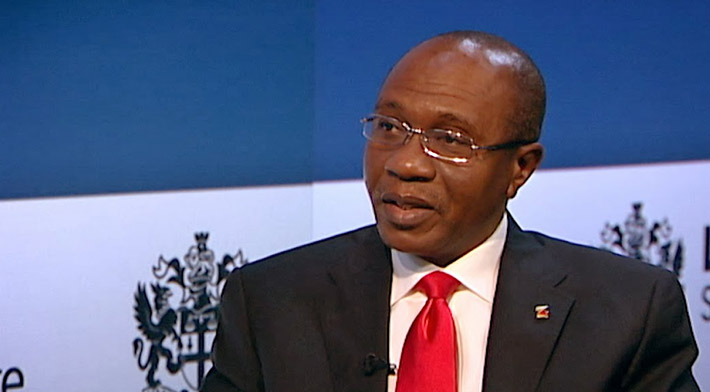Nigeria’s central bank governor Monday said the country’s economy remains fragile, about two years it exited a harsh economic recession.
Godwin Emefiele, who resumed as the CBN governor for a second term at the beginning of June, said it still not all rosy for Africa’s most populous country.
He made the comment in Abuja where he is unveiling a five year-monetary policy roadmap for the apex bank, Reuters reported.
Similar thoughts was also shared by the former chairman of the Nigerian Governors’ Forum, Abdulaziz Yari.
Yari warned that Nigeria may head for another economic recession due to the decline in oil price.
Yari projected that the vital oil industry maybe hit by another weaker global prices, which has fallen from highs of about $112 a barrel in 2014 to below $75 at the moment.
“We are expecting the possibility of another cycle of recession by mid-2020 and which may last up to third quarter of 2021,” he said during the opening ceremony of an induction programme for newly-elected and returning governors in April.
Nigeria’s economy receded at the end of Q2 in 2016 after falling oil prices ate deep into the country’s earnings and caused the naira to weaken thereby causing inflation to spiral upward. Spates of attacks on oil installations in the Niger Delta by militants, who were protesting for better deals from the government, almost crippled oil production.
It exited recession in 2017 after suffering contraction for five consecutive quarters.
Critics say government policies made a bad situation even worse. The decision to delay devaluing Nigeria’s currency meant many businesses struggled to get foreign currency to pay for imports, which had a worse effect on the entire economy.
The slump in global oil prices hit Nigeria hard with the government getting about 70% of its revenues from oil sales.
Source: GuardianNg





